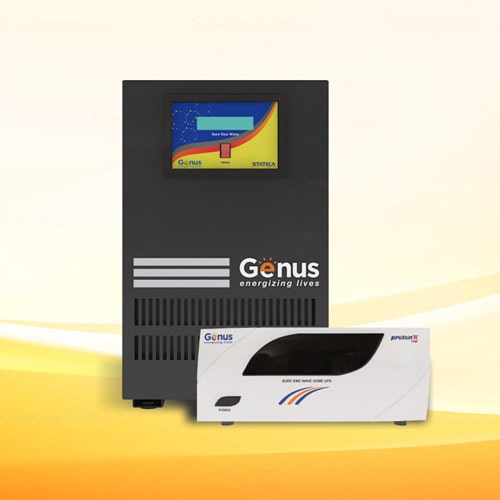
Every residential or commercial establishment these days needs power backup, so that everyday activities can be conducted smoothly and safely. Modern life requires you to depend on a variety of electrical appliances like lights, fans, ACs, computers, washing machines, lifts, and industrial equipment. But power cuts can hamper the running of these appliances and stall your day to day life, causing major inconveniences. This is the reason why most homes and businesses choose a UPS as the power backup solution in case of outages, whether long or short. However, choosing the right UPS can be challenging the wide variety available in the market today. So, here is how to go about it:
- Choosing a type
While an offline or standby UPS can be affordable and suited for short power cuts, the line-interactive UPS can be a little better choice as it switches more quickly from utility to battery power. This can work well for small businesses or homes. An online UPS on the other hand is a wiser pick for big companies that use sensitive equipment, as it can provide uninterrupted, clean and consistent power without any startup delay in case of a power cut. Whether you choose a home UPS, or an industrial one, if you go with a reputed brand, you will get reliable and stable power supply at all times. Plus, the UPS will be energy efficient and keep your utility bills low.
- Power required and overload regulation
First consider the number of appliances or equipment you will be running on the UPS, before you buy one. This way, you will know the amount of power you will require. Then, you have to choose a UPS that has a 25% higher power capacity than the total power need you calculated. Also, make sure that the UPS has an overload regulation feature or an alarm system that alerts you when the load has to be reduced.
- Runtime and switchover
Always pick a UPS that has a sufficiently long backup runtime, so that you are well-prepared for long or frequent power cuts. It should have long battery life and should be able to get charged fast. Also, the switchover to battery mode in case of a power failure should be instant, so that appliances receive continued power supply. This is especially important for sensitive equipment like computers where uninterrupted power supply is essential to avoid rebooting.
- Ease of installation
The UPS should be easy to install and compact so that you can fit it into a small home or office too. You should be able to install it on the floor too, if needed. Plus, the look should be modern and complement the décor of the space you have in mind.
- Safety and ease of use
The UPS should be shock-proof so that children and pets can be safe around it too. Also ensure if it has a user-friendly graphical display that is easy to understand and monitor for the performance of the UPS.
6. Eco-friendly and noiseless
A UPS from a reputed brand will be noiseless and not cause distractions when it is working. Also, it will not pollute the air or emit harmful gases. Choosing a solar UPS can be wise in this regard too, as they depend mostly on solar energy and are clean and eco-friendly. They switch to the grid only when the sun’s power is not available.
So, you see that by keeping a few important things in mind, picking up the right UPS for your needs can be made simple. Remember to convey any other requirements you might have, to the provider, before purchasing.
